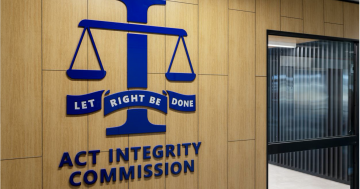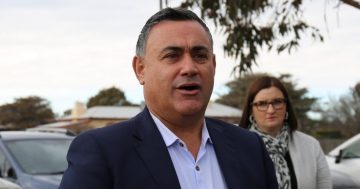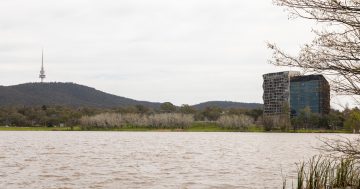
The Integrity Commission will be able to investigate public servants, MLAs and their staff, contractors and the police under the draft Bill.
An ACT independent anti-corruption body would be able to investigate the police and matters that preceded its establishment, under draft legislation released by the Government on Thursday (26 July).
Chief Minister Andrew Barr will introduce the draft Bill to establish the ACT Integrity Commission into the Legislative Assembly tomorrow (31 July).
It comes after of an Assembly Select Committee report last year made 79 recommendations, to which the Government responded in February, committing to the establishment of a corruption watchdog in the ACT.
While the Commission’s focus will be on current matters, the Bill provides for a degree of retrospectivity and it will be able to investigate historical corruption claims if it is deemed in the public interest and so long as they are not trivial, vexatious, mischievous or lacking substance.
The Select Committee believed that the Commission must be able to look into prior conduct to ensure public confidence in the new institution.
But it will not be able to probe matters from before self-government in 1989, or if conduct occurred at too remote a time to justify investigation.
The definition of corrupt conduct follows the NSW ICAC model and the commission will have substantial powers including the ability to compel witnesses, obtain warrants to search premises and seize evidence, and to conduct surveillance operations such as phone-tapping.
It will be able to investigate all public officials, including public servants, MLAs and their staff, government contractors and the police, but not judicial officers who are already subject to oversight through the Judicial Council and Judicial Commission. The Government believes this maintains the separation of powers.
ACT Policing, a service provided by the Australian Federal Police, is included in the definition of public official but the Commonwealth will have to agree and it will require a change in the law. The Bill provides for a 12-month hiatus while the ACT consults with the Federal Government.
The Bill also provides for the commission and other oversight bodies to share information, as well as those in other jurisdictions to refer complaints to it.
The Government believes this will ensure a coordinated approach to the investigation of corrupt conduct in public administration in the ACT.
Under the Bill, the Speaker will appoint a single Integrity Commissioner, who will need to be a Supreme, Federal, or High Court judge.
The role of the Integrity Commission will be to investigate complaints of corruption, refer any criminality to the courts and publish reports, as well as prevent corruption, advise the public sector and educate the community about its work.
All three political parties support the establishment of an Integrity Commission and the draft Bill appears to reflect the Select Committee’s intent. It could be up and running by early next year.
To view the draft Bill, go here.



















